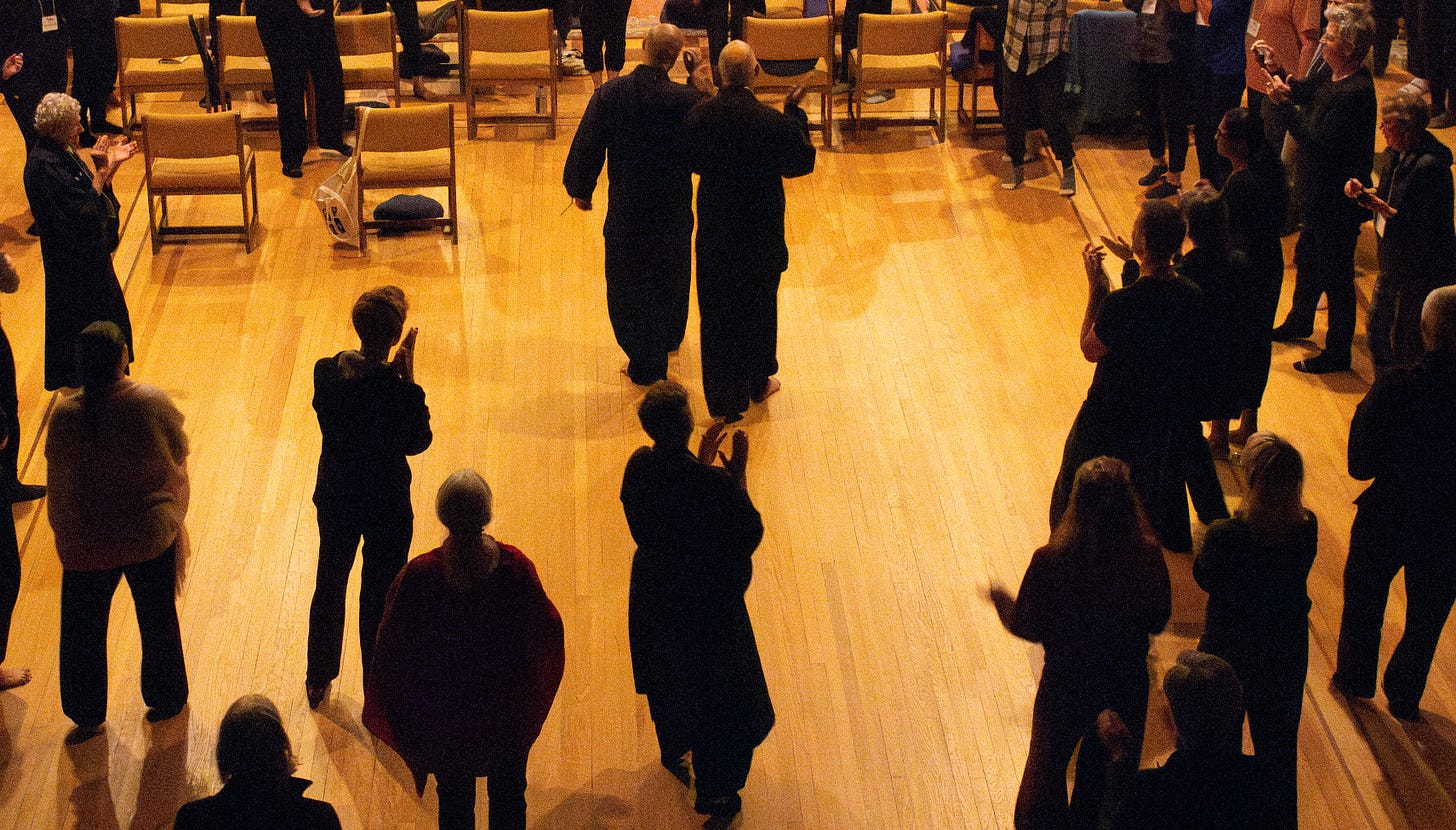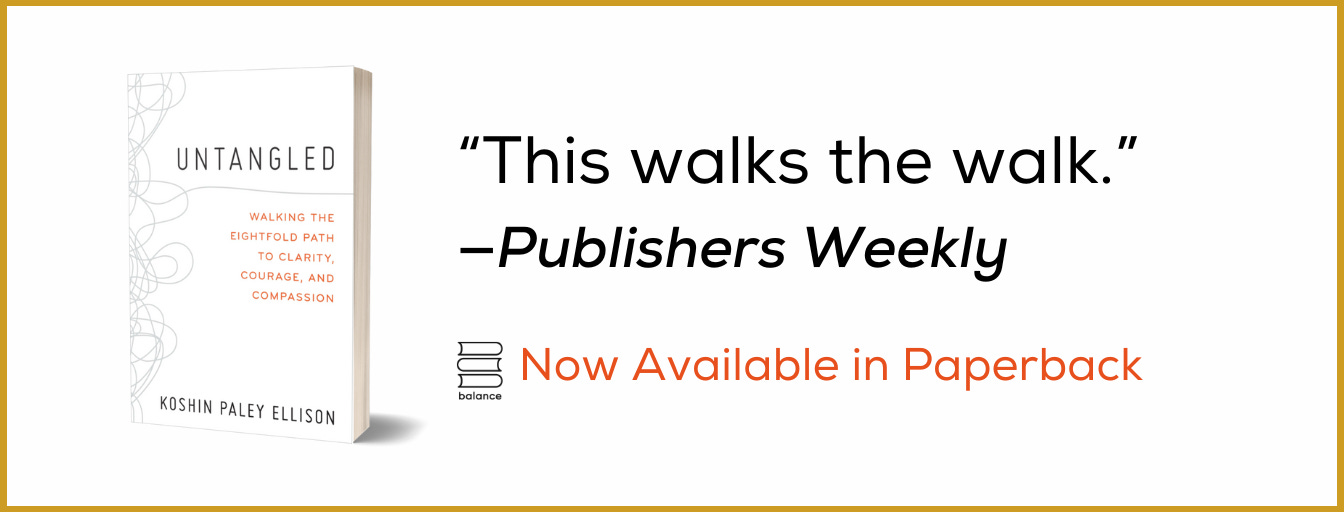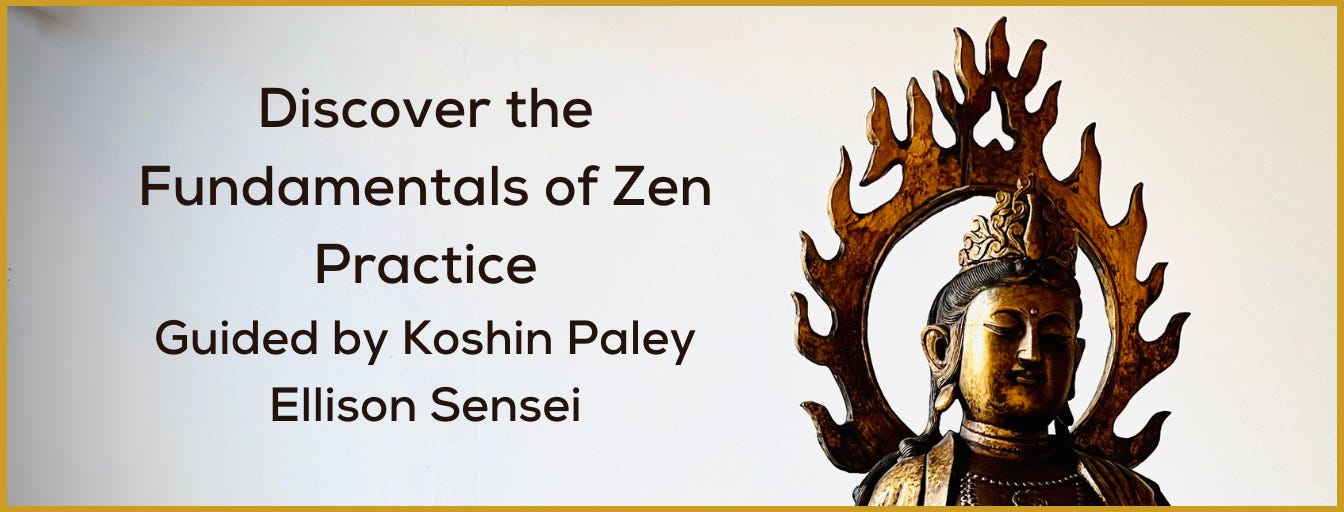A long time ago in Japan, a monk went to his teacher in total distress. “I have many problems,” he told him.
The teacher said, “Okay. I can help you with all your problems.”
The monk was so happy and relieved. ‘Thank goodness,’ he thought. ‘Here is someone who is finally going to tell me how to fix my issues!’
The teacher called everyone into the meditation hall. He climbed up onto the teaching platform, where the heads of the monastery gave talks to the entire monastic community, and said, “Everyone, this monk has a problem.”
Then he got down from the platform and left.
Everyone’s got problems. You, me, your neighbor, that celebrity with the entourage.
There are times when we should focus on our problems. There are also times when focusing on our problems becomes an obsession and actually offers an upside-down way of feeling special and separate.
Focusing on our own problems is a kind of social stinginess. It takes us away from ourselves, out of relationship with others, and out of the entire world.
Many of us have stingy habits. Just think about all the ways we withhold ourselves—all the ways that we are stingy about participating with the world. We withhold sharing our love. We withhold our vulnerability. We withhold expressing what’s true. We withhold our curiosity. We withhold our anger and our sadness. We withhold especially when we encounter difficulty, because we become frightened of risk. The list is long.
But what are we risking when we are stingy? What are we risking when we meet with resistance and pull away? We risk never living a life of conviction, integrity, and authenticity. We risk losing the chance to do good.
How can we work with our emotional stinginess? What supports the shift away from an excessive focus on our own problems?
Expanding awareness is a place of practice.
Recently a Zen student of mine came to me because she was struggling with meditation. Every time she tried to sit and meditate, she couldn’t because she was having too many thoughts.
Now, this is a super-common anxiety with beginner meditators.
People think that meditation will make them stop thinking. They wish that they could sit down and not have any thoughts at all. The problem is that it’s the nature of the brain to think.
That’s its job—to secrete thoughts, dozens and dozens per second!
What I found myself saying to this person was, “Have you considered the migration of whale sharks?”
Needless to say, she was surprised by my comment. (I was too, actually.)
“No,” she said. “I haven’t.”
“Chodo and I were just in Mexico,” I said, “and we learned that they swim with their babies all the way to the southern part of Argentina. Right now, as we’re talking in this room, all these giant whale sharks and their little baby whale sharks are swimming across the oceans.”
Struggles are important to honor, and our struggles need to be shared. But we can also allow our struggles to exist within the context of the whole. There is a beauty to expanding our awareness and realizing that so many things are all happening all at the same time.
Dogen once said:
“One phrase, one verse—that is the ten thousand things and one hundred grasses; one Dharma, one realization—that is all buddhas and ancestral teachers. Therefore, from the beginning of time, there has been no stinginess at all.”
This is basically just a super-Buddhist way of saying: “Consider the workings of the entire universe.”
Right now, somewhere in the world, certain beings can see the sun, and somewhere else, other beings can see the moon. Opening up to this world of myriad possibilities is a spacious generosity, because it allows you to give and receive, to participate with the world, without limit.
Let’s practice together.
Generosity appears when we allow for giving and receiving equally, when we meet each moment as fully and as openly as we can. To everything as part of everything else.
From a vast view, we have lots of space and capacity. You can allow great generosity when asked to pay attention, listen, and participate.
Sometimes stinginess looks like not allowing people their feelings and not reorienting our lives to be curious about them.
Take a moment, right now, to consider how you allow and make space for other people’s needs — a friend, partner, or co-worker. Notice if you feel contracted or closed. How can you release your tightness and allow for generosity? The people who have the willingness to work with this resistance and to stay with what’s true to themselves are the people who inspire change for others.
We practice generosity by realizing that our life is not just for ourselves, but also for others. By participating in the entire universe—whale sharks and all.
Let’s have a dialogue.
Whenever we set out in life, we are going to encounter difficulty, awkwardness, discomfort, and pain. That’s guaranteed. The question is: How can we learn to expand our awareness and keep opening up and out in the face of it?
I’d like to leave you with this.
Once I heard Roshi Bernie Glassman give a talk about engaged Buddhist practice and service work. Someone from the audience stood and said, “It is easy to say ‘just give with loving action in the world,’ but I don’t have enough to give.” Bernie paused for a moment and responded, “You are only thinking of what is in your pockets.”
I’m curious.
When was a time you noticed yourself holding back? What supports the expansion of your awareness and generosity? For the benefit of all beings, please share your stories and insights in the comments below.
May you look up from your struggles, serve others, and consider the entire universe.
Koshin.













Thanks for the beautiful reminders.
What supports the expansion of my awareness and generosity? Zazen.
A faithful practice of study and mediation, spiritual friendships, Sesshin, Commit to Sit, and seeing all beings and circumstances as teachers supports the expansion of my awareness and generosity. It is a continuous practice. Pausing is also extremely supportive. Embracing discomfort. Remembering the impermanence of all things and the state of our interbeing.
So much support for the expansion of my awareness and generosity! It is a wonder I am not more aware and generous!
Thank you, Koshin, for the delicious teaching.